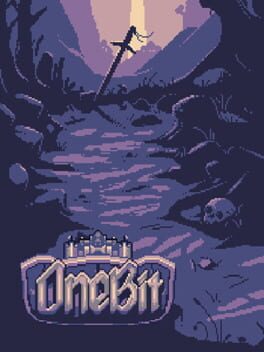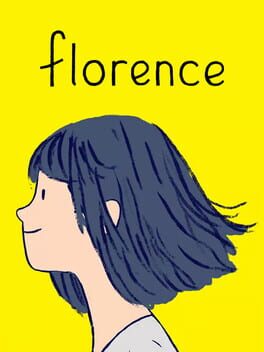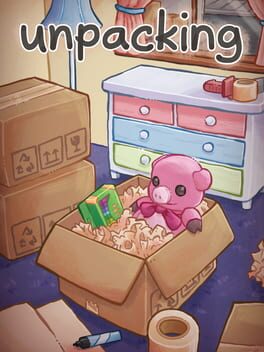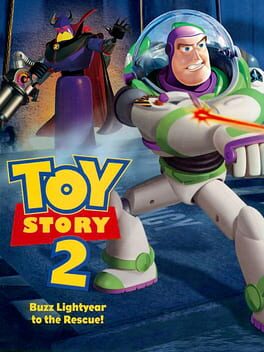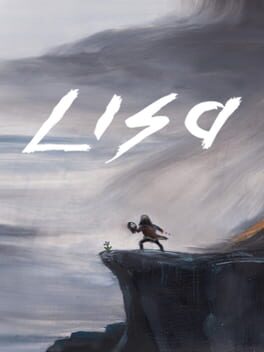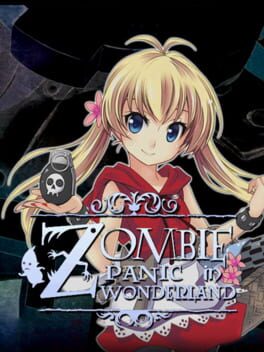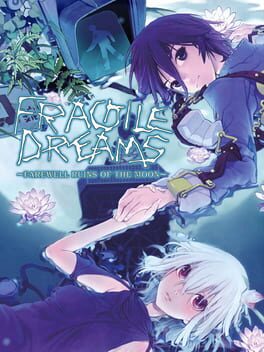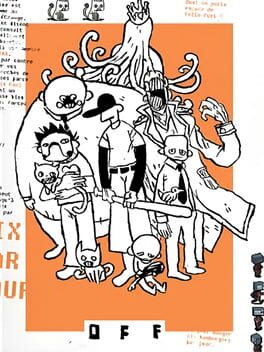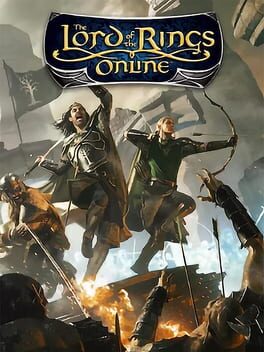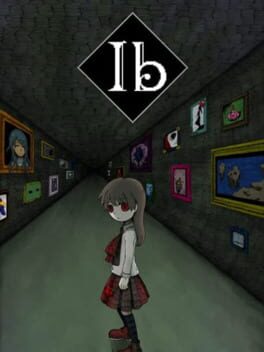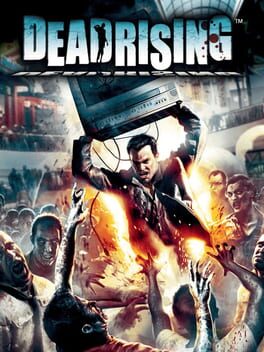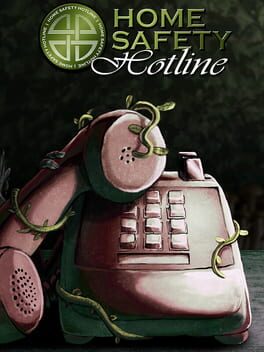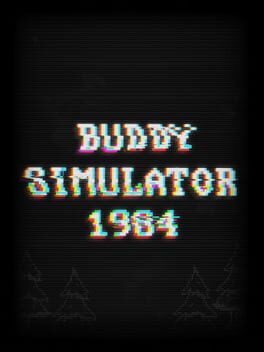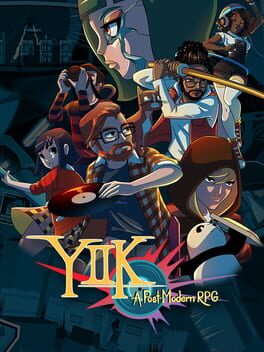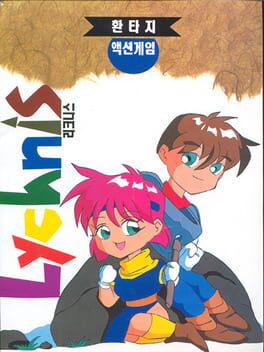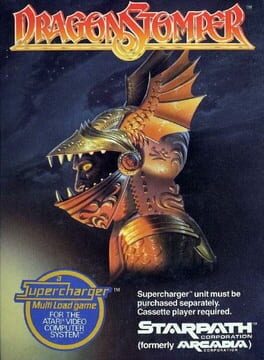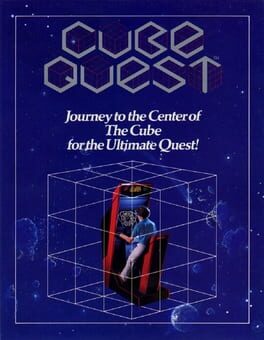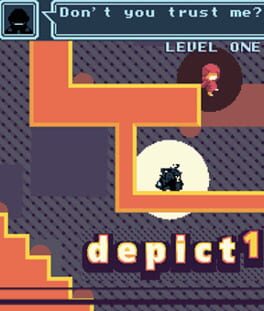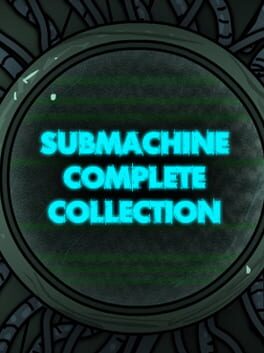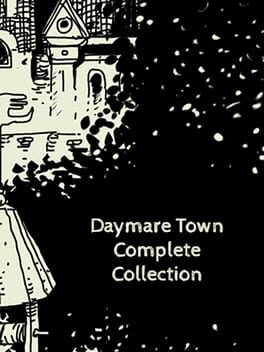localghost
BACKER
7 reviews liked by localghost
EarthBound
1994
OneBit Adventure
2019
Neftelia
2008
played october 18th (finished oct 19th) for rpgmaker october
14ch eternal gomez, 14ch for short, is another rly profilic creator im checking out. i sampled this, its sequel, and n also played games in the 14/? series--which are 3 games titled 14/?, 14/??, and 14/???, and they arent on backloggd atm--plus a knytt stories level they did that i HAD to check out (which is really good n shockingly expansive!!). and they still have a bunch of games in between all of these that i didnt check out. the games i bring up and the rest, or at least most of them, can be found on their website here and here, if you are interested.
i went for neftelia 1 over its sequel mostly bc i didnt want to futz w whatever that arcade world puzzle was in 2 much more than i did, but i also just find the first game more charming in its blockier n chunkier visual mess, n i like the soundtrack more. yume nikki has been held up as the common reference pt for abstract dialogueless rpgmaker et al exploration games ad nauseum, but i bring it up bc despite certain remsemblances that neftelia has to it, 14ch is i think a good example of someone finding their own identity n goals outside of those expectations. not only for superficial gameplay differences found in neftelia, like effects being replaced w weird little movies to find and watch all over the world, but for how much further these games go to experiment w space in rpgmaker. largely in the sense of changing up the logic btwn each "room", in ways that make the game often conditionally modify rules it had set w/o ever feeling incoherent w itself--mazes may have specific things to figure out abt them beyond "look for the path out", there's an occasional switch to a sidescroller angle, the largest map in neft 1 has a gimmick unique to it, things like that. maybe something to be said for exploring the potential that lies within the transition btwn rooms too, but that may be easier to speak on in other games; neft 1 is not as willing to disorient and let you play around w the environment as its sequel, and neither are as single-mindedly and consistently honed on these ideas as the 14/ games' randomized set of rooms. but, not counting a very annoying feature where id accidentally press shift and be forced to reset at the hub (note: do not ever press the shift keys ever until you want to go back to the hub and/or need to save, fortunately neft 2 fixes this by making you have to hold shift), i really liked this for just how early on 14ch's unique expressions n intents came thru w/o overextending itself too much, even in this rough n not yet deepened form.
quick aside abt the 14/ games: 14/? is very good n has some nice surprises in store, ?? is a step down i didnt love as much, ??? is maybe the most striking distillation of their style to date and is so fucking cool. i would play these in release order though personally
14ch eternal gomez, 14ch for short, is another rly profilic creator im checking out. i sampled this, its sequel, and n also played games in the 14/? series--which are 3 games titled 14/?, 14/??, and 14/???, and they arent on backloggd atm--plus a knytt stories level they did that i HAD to check out (which is really good n shockingly expansive!!). and they still have a bunch of games in between all of these that i didnt check out. the games i bring up and the rest, or at least most of them, can be found on their website here and here, if you are interested.
i went for neftelia 1 over its sequel mostly bc i didnt want to futz w whatever that arcade world puzzle was in 2 much more than i did, but i also just find the first game more charming in its blockier n chunkier visual mess, n i like the soundtrack more. yume nikki has been held up as the common reference pt for abstract dialogueless rpgmaker et al exploration games ad nauseum, but i bring it up bc despite certain remsemblances that neftelia has to it, 14ch is i think a good example of someone finding their own identity n goals outside of those expectations. not only for superficial gameplay differences found in neftelia, like effects being replaced w weird little movies to find and watch all over the world, but for how much further these games go to experiment w space in rpgmaker. largely in the sense of changing up the logic btwn each "room", in ways that make the game often conditionally modify rules it had set w/o ever feeling incoherent w itself--mazes may have specific things to figure out abt them beyond "look for the path out", there's an occasional switch to a sidescroller angle, the largest map in neft 1 has a gimmick unique to it, things like that. maybe something to be said for exploring the potential that lies within the transition btwn rooms too, but that may be easier to speak on in other games; neft 1 is not as willing to disorient and let you play around w the environment as its sequel, and neither are as single-mindedly and consistently honed on these ideas as the 14/ games' randomized set of rooms. but, not counting a very annoying feature where id accidentally press shift and be forced to reset at the hub (note: do not ever press the shift keys ever until you want to go back to the hub and/or need to save, fortunately neft 2 fixes this by making you have to hold shift), i really liked this for just how early on 14ch's unique expressions n intents came thru w/o overextending itself too much, even in this rough n not yet deepened form.
quick aside abt the 14/ games: 14/? is very good n has some nice surprises in store, ?? is a step down i didnt love as much, ??? is maybe the most striking distillation of their style to date and is so fucking cool. i would play these in release order though personally
Florence
2018
There is a stigma within the gaming community that 'long' is synonymous with 'good'. Triple A studios pad runtimes to ridiculous lengths with meaningless exposition and repetitive quests to earn the 'good' reputation. But Florence is living proof that sometimes less is more - and that the heart you put into your product goes much further than appealing to the masses.
In 35 minutes, I was taken on a journey that spoke to me personally (and that would just about anyone.) It connected with me in such a way that I felt the urge to go into my bedroom and hug my partner, to hold him and tell him how much I love him. I found myself moved to tears over characters I'd only just met, all because of the game's genius interactivity, delightful music, and accessible narrative.
Maybe I'm just an emotional loser that cries over stories like this. Maybe it connects with me a little more deeply because of my personal issues. But maybe that makes Florence even more powerful - because, really, more games like that should exist. Ones that tell simple, human stories that we can individually relate to. After all, that's what art is about, isn't it?
SHORT REVIEW
Visuals: 5/5
Audio: 5/5
Story: 4.5/5
Gameplay: 4/5
Worldbuilding: 4.5/5
Overall game score: 4.5/5 [4.6/5]
IN-DEPTH REVIEW
Visuals:
The art style is simple - but that same simplicity lends to its inviting and endearing nature. It reminds me of the old children's cartoon Madeline, with its round shapes, dot eyes, and focus on the color yellow. It's not a style you see often in this medium, which makes it all the more lovely here.
One of the most notable aspects of the game's design is its general usage of color. As Florence goes through the ups and downs of her life, the palettes reflect how she feels. Whenever she's stuck in a routine, her surroundings are dull and boring. Whenever she has something to be happy about, they're bright and lively.
I hope that more developers will take the approach Florence's has. They were unafraid to step outside of what is the 'norm' for video games, instead focusing on what can make them unique.
Overall, 5/5.
Audio:
Florence's soundtrack is utterly beautiful; in fact, it's quickly become one of my favorites in the medium, despite its short length. That's not a compliment I give lightly either, because there is some truly substantial competition.
The piano and violin just culminate into magnificent pieces, ones that resonate deeply with me. It feels like being wrapped in a warm blanket. Even more impressive is how each piece stands out from the others, despite their similarities in style and instrument choice.
The best part of the music, though, is how it plays into the story. It swells at just the right moments, sets just the right mood. Each track fits perfectly to the moment it's encapsulating. The game as a whole would not be nearly as impactful without it.
Overall, 5/5.
Story:
[Spoiler warning for this whole section.]
Florence follows the titular young woman as she meets, and eventually loses, the man of her dreams. We follow each stage of their relationship, and the consequential aftermath. The game speaks on how former relationships leave a lasting impact on our life, even long after they've gone.
Most beautifully, it tells us that we shouldn't look back on these relationships with contempt. Even though these people are no longer in our lives, we can appreciate them for the happiness they brought us at the time. The past is not something to live in, OR shun; it's something to appreciate, and leave behind.
Yes, it's treaded ground. It's a story you've probably seen a hundred times in movies, shows, and books. But these are topics that have not been addressed much in gaming - as is the case with the vast majority of normal, human experiences. It's a real a shame, because the level of interactivity that the medium allows makes these kinds of narratives all the more powerful.
Like I've said, the fact that it resonates with me on a very personal level doesn't hurt. I'm someone that has a lot of difficulty letting go of people. When my previous boyfriend broke up with me, I cried myself to sleep for months, even though I hadn't even been happy in the relationship. If I'd played this game at that time, I've no doubt that it would have helped me a lot.
Yes, it's a simple story. But it's one that I needed to hear, and one that others may need to hear, too. That makes it worth telling over and over again.
Overall, 4.5/5.
Gameplay:
I wouldn't be surprised if a lot of people found Florence's gameplay to be lackluster. After all, it's as simple as the story. There's no real barrier or challenge. You just complete straightforward actions to move the narrative along. But if you approach Florence as an interactive comic instead of a traditional game, I think you'll avoid the expectation that it should have puzzles or a fail-state.
Because, in the end, that's the exclusive goal of its mechanics - to cleverly portray its narrative. The little activities you complete give you a direct role in the story, making it all the more impactful. As Florence becomes more comfortable around Krish with each date, the speech bubbles becomes easier for you to piece together. When they fight, those pieces become jagged. You cook together, eat together, brush your teeth together. It's all painlessly uncomplicated, but that integration is what makes it genius.
Overall, 4/5.
Worldbuilding:
Florence opens by showing you the routine the titular character has found herself stuck in. Her days are tiresome, boring, and repetitive. She works a dead-end job. She has no friends. She isn't happy.
But, when she meets Krish, her world is suddenly filled with life and color. She is pushed to explore her childhood passions. [SPOILERS] She grows as a person, and continues to do so even after the relationship ends. Krish has a permanent effect on her life, one that we see firsthand. [SPOILER END]
The worldbuilding is basic, but you see just enough of Florence's history. Her strained relationship with her mom, her unhappiness with her career, her loneliness. The game tactfully avoids bloating itself with unneeded details, instead focusing on what matters to make Florence a well-rounded protagonist. Everything you need is here.
Overall, 4.5/5.
Overall game score. 4.5/5. Florence is just lovely. The art and music are brilliant. The story is touching. The mechanics, while rudimentary, are perfect for this type of game. I really hope I can find more little gems like this in the future - indie titles that don't get enough praise. This one definitely deserves more.
In 35 minutes, I was taken on a journey that spoke to me personally (and that would just about anyone.) It connected with me in such a way that I felt the urge to go into my bedroom and hug my partner, to hold him and tell him how much I love him. I found myself moved to tears over characters I'd only just met, all because of the game's genius interactivity, delightful music, and accessible narrative.
Maybe I'm just an emotional loser that cries over stories like this. Maybe it connects with me a little more deeply because of my personal issues. But maybe that makes Florence even more powerful - because, really, more games like that should exist. Ones that tell simple, human stories that we can individually relate to. After all, that's what art is about, isn't it?
SHORT REVIEW
Visuals: 5/5
Audio: 5/5
Story: 4.5/5
Gameplay: 4/5
Worldbuilding: 4.5/5
Overall game score: 4.5/5 [4.6/5]
IN-DEPTH REVIEW
Visuals:
The art style is simple - but that same simplicity lends to its inviting and endearing nature. It reminds me of the old children's cartoon Madeline, with its round shapes, dot eyes, and focus on the color yellow. It's not a style you see often in this medium, which makes it all the more lovely here.
One of the most notable aspects of the game's design is its general usage of color. As Florence goes through the ups and downs of her life, the palettes reflect how she feels. Whenever she's stuck in a routine, her surroundings are dull and boring. Whenever she has something to be happy about, they're bright and lively.
I hope that more developers will take the approach Florence's has. They were unafraid to step outside of what is the 'norm' for video games, instead focusing on what can make them unique.
Overall, 5/5.
Audio:
Florence's soundtrack is utterly beautiful; in fact, it's quickly become one of my favorites in the medium, despite its short length. That's not a compliment I give lightly either, because there is some truly substantial competition.
The piano and violin just culminate into magnificent pieces, ones that resonate deeply with me. It feels like being wrapped in a warm blanket. Even more impressive is how each piece stands out from the others, despite their similarities in style and instrument choice.
The best part of the music, though, is how it plays into the story. It swells at just the right moments, sets just the right mood. Each track fits perfectly to the moment it's encapsulating. The game as a whole would not be nearly as impactful without it.
Overall, 5/5.
Story:
[Spoiler warning for this whole section.]
Florence follows the titular young woman as she meets, and eventually loses, the man of her dreams. We follow each stage of their relationship, and the consequential aftermath. The game speaks on how former relationships leave a lasting impact on our life, even long after they've gone.
Most beautifully, it tells us that we shouldn't look back on these relationships with contempt. Even though these people are no longer in our lives, we can appreciate them for the happiness they brought us at the time. The past is not something to live in, OR shun; it's something to appreciate, and leave behind.
Yes, it's treaded ground. It's a story you've probably seen a hundred times in movies, shows, and books. But these are topics that have not been addressed much in gaming - as is the case with the vast majority of normal, human experiences. It's a real a shame, because the level of interactivity that the medium allows makes these kinds of narratives all the more powerful.
Like I've said, the fact that it resonates with me on a very personal level doesn't hurt. I'm someone that has a lot of difficulty letting go of people. When my previous boyfriend broke up with me, I cried myself to sleep for months, even though I hadn't even been happy in the relationship. If I'd played this game at that time, I've no doubt that it would have helped me a lot.
Yes, it's a simple story. But it's one that I needed to hear, and one that others may need to hear, too. That makes it worth telling over and over again.
Overall, 4.5/5.
Gameplay:
I wouldn't be surprised if a lot of people found Florence's gameplay to be lackluster. After all, it's as simple as the story. There's no real barrier or challenge. You just complete straightforward actions to move the narrative along. But if you approach Florence as an interactive comic instead of a traditional game, I think you'll avoid the expectation that it should have puzzles or a fail-state.
Because, in the end, that's the exclusive goal of its mechanics - to cleverly portray its narrative. The little activities you complete give you a direct role in the story, making it all the more impactful. As Florence becomes more comfortable around Krish with each date, the speech bubbles becomes easier for you to piece together. When they fight, those pieces become jagged. You cook together, eat together, brush your teeth together. It's all painlessly uncomplicated, but that integration is what makes it genius.
Overall, 4/5.
Worldbuilding:
Florence opens by showing you the routine the titular character has found herself stuck in. Her days are tiresome, boring, and repetitive. She works a dead-end job. She has no friends. She isn't happy.
But, when she meets Krish, her world is suddenly filled with life and color. She is pushed to explore her childhood passions. [SPOILERS] She grows as a person, and continues to do so even after the relationship ends. Krish has a permanent effect on her life, one that we see firsthand. [SPOILER END]
The worldbuilding is basic, but you see just enough of Florence's history. Her strained relationship with her mom, her unhappiness with her career, her loneliness. The game tactfully avoids bloating itself with unneeded details, instead focusing on what matters to make Florence a well-rounded protagonist. Everything you need is here.
Overall, 4.5/5.
Overall game score. 4.5/5. Florence is just lovely. The art and music are brilliant. The story is touching. The mechanics, while rudimentary, are perfect for this type of game. I really hope I can find more little gems like this in the future - indie titles that don't get enough praise. This one definitely deserves more.
Unpacking
2021
Unpacking is an incredibly pleasant and relaxing 4-hour puzzle game; more importantly, though, it’s a triumph in both environmental storytelling and detailed worldbuilding.
You see, in those four hours of gameplay, you take part in every major move of an unnamed woman’s life. You unpack her boxes and organize her belongings. You find homes for everything from a Rubik’s Cube to D&D figures. Despite not knowing her face or name, you become an intimate part of this woman’s personal story. [SPOILERS] She gets her own room, goes to college, moves into a partner’s place, returns to her parent’s house… [SPOILER END]
None of it is a particularly original story, but that’s what makes it such a beautiful affair. These are things each and every one of us go through, in some way or another. We move out, move around, struggle to find a sense of permanence in each place we stay. No, originality is not what makes Unpacking so good. It’s how relatable it is to every single person who picks it up.
SHORT REVIEW
Visuals: 5/5
Sound: 5.5/5
Story: 4/5
Gameplay: 3.5/5
Worldbuilding: 5/5
Overall game score: 4.5/5 [4.6/5]
IN-DEPTH REVIEW
Visuals:
Each room you unpack is viewed from a high-angle perspective that covers the entire area. Each is also flawlessly sized to give you enough space to work with, without it becoming overwhelming. These aspects of the visual design are so well thought-out, and a huge contributor to the game’s chill nature.
That’s not even mentioning the gorgeous pixel art. Every item made to occupy these living spaces are so detailed and lovingly created. The lighting, shadows, and textures on each make them beautifully realistic and stylish - down to the pen, and up to the bunk bed.
In fact, these items are the main factor in Unpacking’s amazing worldbuilding; it all comes down to the woman’s possessions changing over time. Her D&D figure becomes painted. Her stuffed pig gets worn and torn. Her computer upgrades from a boxy monitor to a laptop. She gains and loses stuff over the years, never remaining static. This is what really and truly makes the entire game. Every single item is given thought and attention, which is perfectly portrayed through the spectacular pixel art.
Overall, 5/5.
Sound:
Each stage is set to its own soft, relaxing track; the mixture of old-school chiptune and lovely acoustics complement each other surprisingly well. Additionally, when each piece ends, instead of immediately looping back, you’re placed into a few minutes of music-free activity. In those minutes, you find yourself accompanied only by the sounds of birds chirping, cars passing, plates stacking, and shampoo bottles being placed. It’s a calming silence, an immersive one.
But even more impressive are the sound effects. See, Unpacking sports a library of over 14,000 files to replicate ordinary, everyday sounds; you can set a can of Febreze on the same toilet five times without hearing the exact same one twice. This awe-inspiring level of detail is one of the biggest things that makes this game so immersive. Every single combination of item and placement is its own little experience.
All of these elements of the design are such an important, understated contributor to my personal love for this game. The calming atmosphere created by the music, coupled with the satisfying sound effects, gently push you to keep going.
In other words, the sound grabs your attention, while the worldbuilding and visuals grab your heart.
Overall, 5.5/5.
Story:
As I’ve already said, Unpacking does not have a particularly special story. The premise is simple; an ordinary girl goes through ordinary life changes. What is unique about this game is its show-don’t-tell portrayal of our unnamed protagonist’s personal evolution. We are presented her life path through each new place she lives, and the belongings she brings with her.
As the woman grows, her interests and tastes grow with her. She gains or cultivates hobbies (some of which are influenced by the people around her, some of which she discovers on her own.) Her goals gain clarity, and her dreams are put into motion. She advances her career and upgrades her equipment. [SPOILERS] She starts a family. [SPOILER END] All of this is told to us without a word ever being spoken.
It’s a thesis on how you don’t really need to talk to someone to know them intimately. Our possessions are a peek into our personality and passions; it’s something that applies to all of us. For me, it’s my wrestling autographs, cat figurines, sketchbooks, and video games. For my boyfriend, it’s books, movies, and jewelry. For you, it’s something else, an assortment of items that reflect what you love and care about.
But it goes beyond that. They’re a peek into our history, too. When she moves in with her first serious boyfriend, she gets into music because he loves it; she still has her ukulele and music books years later. Wherever she lives, she hangs up pictures of her with her friends. She keeps t-shirts from her college days. This woman is wrapped in a lovingly-created backstory, but it’s a backstory we witness firsthand.
During each stage, we see the woman make major life changes and grow up. Yes, it’s simplistic and mundane. There’s no high-stakes drama; it’s not reinventing the wheel. But what this game has that no other I’ve played does is an innate sense of wonder that we, as humans, attach to our belongings and surroundings. The way we grow as people, the leaps of faith we take when finding our own apartment or moving in with a partner. It’s beautiful in its own way, this display of normal - but scary - steps we all have to take, and the things we bring along for the ride.
Overall, 4/5.
Gameplay:
Underneath its fantastic story is Unpacking’s (mostly) relaxing gameplay loop. You open boxes, pull out one item at a time, and find them a place in your new home. It satisfies the human need to organize and decorate, without any pressure on you to do anything else; there’s no in-depth systems, no difficult puzzles to solve. It’s just what the name says.
You have a pretty nice amount of freedom, too. For example, I always preferred having the sketchbooks together in the woman’s workspace. Although some items are required to be in certain rooms, you can often pick and choose - so even if it’s another person’s things, it’s at least slightly customized to you.
Unfortunately, though, those item restrictions are quite annoying when they DO pop up. While it didn’t bother me personally, I understand why others found it frustrating. Putting work into what’s meant to be a relaxing experience by organizing things how you like, only to be told that you did it wrong, isn’t exactly relaxing.
Thankfully, there is an option to turn this off, so you can cater to all players. At the end of the day, Unpacking isn’t ABOUT being challenging. It’s about that simple feeling of fulfillment, and watching the story unfold before you. If people don’t want to be forced to arrange things in a certain way, they shouldn’t have to.
Overall, 3.5/5.
Worldbuilding:
I’ve already spent a large portion of this review gushing about how good Unpacking’s worldbuilding is. Through the visual and environmental storytelling, a relatively forgettable story suddenly becomes remarkable. The artistic depiction of wear and tear, of growing up, of change… that’s what makes this game special.
I have a stuffed animal, a weiner dog named Frankie. I got him since I was 12. His fur is matted and no longer shines from years of holding him while I sleep; he’s flat from years of being used as a pillow. He’s got a chip in one of his eyes. He’s old and worn, but to this day, I keep him on my bed. Why? Because he’s one of the best things from my childhood. He’s a reminder of a good memory. He’s something I can hug whenever I’m sad. He holds a decade of love in his lumpy stuffing.
The ukulele I’ve owned since I was 16 sits near my bed. Even if I rarely play it anymore, it’s my favorite Christmas gift - maybe the nicest thing my family ever did for me. The sketchbooks I’ve filled throughout my teenage and adulthood line a shelf, crammed with old characters and ideas. My closet is 1/4 wrestling t-shirts - ones my mom found in thrift stores, and ones I’ve bought as an adult.
All of this is what Unpacking is about. It’s about people, and who we are at our core. The love we put into our belongings and our homes. And although it may not be entirely intentional, it’s a wonderful showing of how special each and every person is.
Overall, 5/5.
Overall game score: 4.5/5. Unpacking is such a nice, pleasant, heartfelt game. It tells a sweet and simple story through incredible visual storytelling. While the gameplay isn’t executed perfectly and may not be for everyone, it was very charming by my account. This is a project I admire a lot for the effort and love that were obviously put into it. I’d highly recommend it to anyone.
You see, in those four hours of gameplay, you take part in every major move of an unnamed woman’s life. You unpack her boxes and organize her belongings. You find homes for everything from a Rubik’s Cube to D&D figures. Despite not knowing her face or name, you become an intimate part of this woman’s personal story. [SPOILERS] She gets her own room, goes to college, moves into a partner’s place, returns to her parent’s house… [SPOILER END]
None of it is a particularly original story, but that’s what makes it such a beautiful affair. These are things each and every one of us go through, in some way or another. We move out, move around, struggle to find a sense of permanence in each place we stay. No, originality is not what makes Unpacking so good. It’s how relatable it is to every single person who picks it up.
SHORT REVIEW
Visuals: 5/5
Sound: 5.5/5
Story: 4/5
Gameplay: 3.5/5
Worldbuilding: 5/5
Overall game score: 4.5/5 [4.6/5]
IN-DEPTH REVIEW
Visuals:
Each room you unpack is viewed from a high-angle perspective that covers the entire area. Each is also flawlessly sized to give you enough space to work with, without it becoming overwhelming. These aspects of the visual design are so well thought-out, and a huge contributor to the game’s chill nature.
That’s not even mentioning the gorgeous pixel art. Every item made to occupy these living spaces are so detailed and lovingly created. The lighting, shadows, and textures on each make them beautifully realistic and stylish - down to the pen, and up to the bunk bed.
In fact, these items are the main factor in Unpacking’s amazing worldbuilding; it all comes down to the woman’s possessions changing over time. Her D&D figure becomes painted. Her stuffed pig gets worn and torn. Her computer upgrades from a boxy monitor to a laptop. She gains and loses stuff over the years, never remaining static. This is what really and truly makes the entire game. Every single item is given thought and attention, which is perfectly portrayed through the spectacular pixel art.
Overall, 5/5.
Sound:
Each stage is set to its own soft, relaxing track; the mixture of old-school chiptune and lovely acoustics complement each other surprisingly well. Additionally, when each piece ends, instead of immediately looping back, you’re placed into a few minutes of music-free activity. In those minutes, you find yourself accompanied only by the sounds of birds chirping, cars passing, plates stacking, and shampoo bottles being placed. It’s a calming silence, an immersive one.
But even more impressive are the sound effects. See, Unpacking sports a library of over 14,000 files to replicate ordinary, everyday sounds; you can set a can of Febreze on the same toilet five times without hearing the exact same one twice. This awe-inspiring level of detail is one of the biggest things that makes this game so immersive. Every single combination of item and placement is its own little experience.
All of these elements of the design are such an important, understated contributor to my personal love for this game. The calming atmosphere created by the music, coupled with the satisfying sound effects, gently push you to keep going.
In other words, the sound grabs your attention, while the worldbuilding and visuals grab your heart.
Overall, 5.5/5.
Story:
As I’ve already said, Unpacking does not have a particularly special story. The premise is simple; an ordinary girl goes through ordinary life changes. What is unique about this game is its show-don’t-tell portrayal of our unnamed protagonist’s personal evolution. We are presented her life path through each new place she lives, and the belongings she brings with her.
As the woman grows, her interests and tastes grow with her. She gains or cultivates hobbies (some of which are influenced by the people around her, some of which she discovers on her own.) Her goals gain clarity, and her dreams are put into motion. She advances her career and upgrades her equipment. [SPOILERS] She starts a family. [SPOILER END] All of this is told to us without a word ever being spoken.
It’s a thesis on how you don’t really need to talk to someone to know them intimately. Our possessions are a peek into our personality and passions; it’s something that applies to all of us. For me, it’s my wrestling autographs, cat figurines, sketchbooks, and video games. For my boyfriend, it’s books, movies, and jewelry. For you, it’s something else, an assortment of items that reflect what you love and care about.
But it goes beyond that. They’re a peek into our history, too. When she moves in with her first serious boyfriend, she gets into music because he loves it; she still has her ukulele and music books years later. Wherever she lives, she hangs up pictures of her with her friends. She keeps t-shirts from her college days. This woman is wrapped in a lovingly-created backstory, but it’s a backstory we witness firsthand.
During each stage, we see the woman make major life changes and grow up. Yes, it’s simplistic and mundane. There’s no high-stakes drama; it’s not reinventing the wheel. But what this game has that no other I’ve played does is an innate sense of wonder that we, as humans, attach to our belongings and surroundings. The way we grow as people, the leaps of faith we take when finding our own apartment or moving in with a partner. It’s beautiful in its own way, this display of normal - but scary - steps we all have to take, and the things we bring along for the ride.
Overall, 4/5.
Gameplay:
Underneath its fantastic story is Unpacking’s (mostly) relaxing gameplay loop. You open boxes, pull out one item at a time, and find them a place in your new home. It satisfies the human need to organize and decorate, without any pressure on you to do anything else; there’s no in-depth systems, no difficult puzzles to solve. It’s just what the name says.
You have a pretty nice amount of freedom, too. For example, I always preferred having the sketchbooks together in the woman’s workspace. Although some items are required to be in certain rooms, you can often pick and choose - so even if it’s another person’s things, it’s at least slightly customized to you.
Unfortunately, though, those item restrictions are quite annoying when they DO pop up. While it didn’t bother me personally, I understand why others found it frustrating. Putting work into what’s meant to be a relaxing experience by organizing things how you like, only to be told that you did it wrong, isn’t exactly relaxing.
Thankfully, there is an option to turn this off, so you can cater to all players. At the end of the day, Unpacking isn’t ABOUT being challenging. It’s about that simple feeling of fulfillment, and watching the story unfold before you. If people don’t want to be forced to arrange things in a certain way, they shouldn’t have to.
Overall, 3.5/5.
Worldbuilding:
I’ve already spent a large portion of this review gushing about how good Unpacking’s worldbuilding is. Through the visual and environmental storytelling, a relatively forgettable story suddenly becomes remarkable. The artistic depiction of wear and tear, of growing up, of change… that’s what makes this game special.
I have a stuffed animal, a weiner dog named Frankie. I got him since I was 12. His fur is matted and no longer shines from years of holding him while I sleep; he’s flat from years of being used as a pillow. He’s got a chip in one of his eyes. He’s old and worn, but to this day, I keep him on my bed. Why? Because he’s one of the best things from my childhood. He’s a reminder of a good memory. He’s something I can hug whenever I’m sad. He holds a decade of love in his lumpy stuffing.
The ukulele I’ve owned since I was 16 sits near my bed. Even if I rarely play it anymore, it’s my favorite Christmas gift - maybe the nicest thing my family ever did for me. The sketchbooks I’ve filled throughout my teenage and adulthood line a shelf, crammed with old characters and ideas. My closet is 1/4 wrestling t-shirts - ones my mom found in thrift stores, and ones I’ve bought as an adult.
All of this is what Unpacking is about. It’s about people, and who we are at our core. The love we put into our belongings and our homes. And although it may not be entirely intentional, it’s a wonderful showing of how special each and every person is.
Overall, 5/5.
Overall game score: 4.5/5. Unpacking is such a nice, pleasant, heartfelt game. It tells a sweet and simple story through incredible visual storytelling. While the gameplay isn’t executed perfectly and may not be for everyone, it was very charming by my account. This is a project I admire a lot for the effort and love that were obviously put into it. I’d highly recommend it to anyone.
Something about platforming and exploring giant everyday locations as a small character is extremely appealing to me. I loved it in Chibi-Robo, and I love it here. I guess it's because I did so much worldbuilding about the little society of toys that lived in my house as a kid. The basement, the living room, my bedroom, every room I could get my toys into, each was its own country with its own population, leaders, and landmarks. You could say it was inspired by Toy Story 1 and 2, but I'd like to think my vision of toy society was more elaborate, and involved a lot more Mario and Sonic plushies.
Chibi-Robo is definitely the closest a game has gotten to realizing that vision, and a lot closer than Toy Story 2, but Toy Story 2 gets at another aspect of my childhood: being bored and imagining video game levels around me. I can't tell you the number of times I was in class and just imagined a little guy jumping from desk to desk, climbing up poles, wall jumping between cabinets. Pretty much every room I was in for more than 5 minutes I just started imagining Mario hopping around it, and I gotta say Toy Story 2 is pretty close to what that looked like. It's pretty admirable the way it never really breaks the rules of taking place in a believable space that someone could live in or walk through. Sure, sometimes there's just random toxic goo on the floor, and evil toys are shooting everywhere, but the way levels set up their platforming challenges always felt believable, because I imagined how it would work over and over again as a kid. Everything's obviously scaled for PS1, but like, there's a part of this game where you jump around the cabinets of a kitchen and I was just like "Yes, this is EXACTLY how it would work!"
This game has no right to be as solid as it is. Checked it out after Twinsanity, since while playing that I realized how much of an uneven library pre-Lego Traveler's Tales has. So many of their games seem to be "pretty good except for this one thing that makes it go down 2 points" or "really technically impressive but a nightmare to play". Thankfully this is just good. A lot easier and lighter than other 3D platformers at the time, but whatever, I'm not asking the Toy Story 2 game to have a huge amount of depth.
Chibi-Robo is definitely the closest a game has gotten to realizing that vision, and a lot closer than Toy Story 2, but Toy Story 2 gets at another aspect of my childhood: being bored and imagining video game levels around me. I can't tell you the number of times I was in class and just imagined a little guy jumping from desk to desk, climbing up poles, wall jumping between cabinets. Pretty much every room I was in for more than 5 minutes I just started imagining Mario hopping around it, and I gotta say Toy Story 2 is pretty close to what that looked like. It's pretty admirable the way it never really breaks the rules of taking place in a believable space that someone could live in or walk through. Sure, sometimes there's just random toxic goo on the floor, and evil toys are shooting everywhere, but the way levels set up their platforming challenges always felt believable, because I imagined how it would work over and over again as a kid. Everything's obviously scaled for PS1, but like, there's a part of this game where you jump around the cabinets of a kitchen and I was just like "Yes, this is EXACTLY how it would work!"
This game has no right to be as solid as it is. Checked it out after Twinsanity, since while playing that I realized how much of an uneven library pre-Lego Traveler's Tales has. So many of their games seem to be "pretty good except for this one thing that makes it go down 2 points" or "really technically impressive but a nightmare to play". Thankfully this is just good. A lot easier and lighter than other 3D platformers at the time, but whatever, I'm not asking the Toy Story 2 game to have a huge amount of depth.
Lisa: The Painful
2014
LISA: THE PAINFUL REVIEW
Note: I give spoiler warnings for spoilers.
There's so much I could say about LISA. Honestly, I could probably talk about it forever.
I first played it in April of 2017. I then promptly replayed it a second time in May, and recently finished a third run (with a fourth unfinished one in between.) It has been amongst my very favorite games since that first run, and I expect it to remain there... Probably forever.
I truly think it's one of the best of all time, and something everyone should play, if they can stomach it. It certainly isn't a story that everyone will be able to sit through, but it's absolutely worth it if you can - for both the serious moments, and the humorous ones.
Here is a TW guide for LISA that I think people should see before heading in, because it really does deal with a lot of triggering topics. Still, don't let the dark nature deter you, unless you're really not good with that sort of thing. LISA has a lot to say, and it says it exceptionally well.
TW list: Parental abuse (physical, emotional, and sexual. The first two are shown on-screen, the last is implied.) Child rape (implied, talked about, common theme.) Drug usage and addiction (shown on-screen.) Suicide (shown on-screen.) Animal death (shown on-screen, once.)
SHORT REVIEW
Visuals: 4.5/5
Sound: 5.5/5
Story: 5.5/5
Gameplay: 4.5/5
Worldbuilding: 5.5/5
Achievements (Does not count toward overall score.): 5/5
Overall score: 5/5 [5.1/5]
IN-DEPTH REVIEW
Visuals:
LISA is a simple 2D pixel game, but I honestly really love the style. I think that, in general, it's an underrated choice (especially with the current trend of AAA studios tending towards hyper-realistic graphics.) It suits LISA perfectly, and it looks great for being made by a single person. It's not anything groundbreaking, but it's really good.
Most of the character designs are great, too. There's so many unique-looking people, both allies and foes. The companions, the human enemies, the joy mutants - they're all so memorable. On the surface, there are many designs that seem like they would feel out of place - but they don't. A guy with a goose head who reads poetry? A spear-wielding tiger man named Tiger Man? Fish people? Angry snowmen with guns? Yeah, that all works. Because the humor and the world of LISA are already so absurd, all of the weird designs it presents you with just work.
(My only complaint with this aspect is that I'm not a fan of how some of the POC are portrayed. It's very stereotypical at times.)
I also love the use of color. Most apocalypse settings will refrain from palettes outside of browns, grays, and maybe reds. LISA doesn't take this road, though. There are lots of colors in the game - both in the locations and in the character designs. It's something that makes the world pop. (Side note, this is something I think Fallout 4 actually did right, too.)
The graphics are simple, yet charming. That, plus the designs and colors, make LISA a memorable visual experience.
Overall, 4.5/5.
Sound:
This game has, hands down, one of my favorite soundtracks of all time. I cannot overstate how much the music contributes to the atmosphere, and how good of a job it does. I really can't explain to anyone why it's so good, either - all of the tracks are just so catchy and fun (or unnerving, in some cases.) It's very unique, too. I've never heard any music like it, and I doubt I ever will again.
Besides that, there's not much sound design to review here, minus some audio cues and a few one-off jokes during dialogue. LISA doesn't really need a lot of sound, though. The cues serve their purpose, and the rest of the focus is given to the music (or the absence of it in some parts, which is just as effective.)
Overall, 5.5/5.
Story:
I truly believe that LISA has one of the most tragic, heart wrenching plots in any medium. It's one that you have to experience, instead of just reading about.
LISA has the capability of shifting perfectly between darkly comedic and downright nauseating in a heartbeat - and it often manages to do both at the same time. The world of Olathe is a dark reflection of toxic masculinity. Men who solve their problems with violence. Men who feel entitled. Men who are willing to hurt and traumatize to satisfy their own pleasures.
It's a story of a father chasing after his adoptive daughter, in an effort to keep her safe from the immeasurable danger she faces on her own... But then, the game makes you question whether he does so because he really loves her, or if it's because of his own deep-seated guilt related to his past.
Almost none of the people in LISA are good people, and almost none of them are innocent. There are times where, emotionally, it feels like a hopeless endeavor to continue trying. And yet Brad keeps marching forward, so why shouldn't you? No matter how difficult it gets, he is committed to mowing down every man who stands between him and rescuing Buddy - [SPOILERS] despite the fact that she doesn't WANT to be rescued by him. [SPOILER ENDING]
There are so many different plot threads, all interesting, all which tie together perfectly. Every one of these people are haunted by the death of one girl, years ago; even the title screen is haunted by her. Whether the people knew her or not, it doesn't matter. She's always there, lingering in the background.
The writing is amazing, too. The dialogue between characters is great. All of the serious moments feel natural and real. And the game is so funny. The jokes nearly always land, and are super entertaining.
Lastly, the ending is perfect. It genuinely makes me emotional every time I play through it again.
I will never forget the final words spoken in LISA, or everything leading up to them.
Overall, 5.5/5.
Gameplay:
The combat system is fairly simple. That's a complaint I hear often, but I don't personally see it as a negative. I don't think it NEEDED to be overly-complicated. What it does provide is fun and interesting. There are some cool combinations you can pull off, if you think about who you utilize as companions. There's a few different mechanics in the combat itself, too, such as the status effects (of which there are many), and the use of SP and TP on different characters.
I do think it's notable that, at some point, the combat CAN get pretty easy (minus some of the boss fights.) This largely depends on which route you take. I won't spoil much, but there is a chance to make the fighting much less taxing than it could be, at the cost of other in-game consequences.
There is also a Painful mode, which can add a new layer of difficulty. I've played it once, and it's a fun way to make replays a bit more challenging. I'm sure that when I inevitably play the game again in a year or two, I'll be playing this mode.
Overall, 4.5/5.
Worldbuilding:
Olathe is such a unique and interesting setting. It perfectly blends the dark aspects of the setting with the humor, creating an experience that no other game can offer. It is chock-full of fascinating characters, both one-off and recurring. There's endless little details, encounters, and jokes to discover. There are a lot of hints toward the plot and what's really going on, but it's left just vague enough to give you something to think about and theorize on even after the credits roll.
There is never a dull moment in LISA. Every in-game location has something to keep your attention and/or make you laugh.
(Side note, I love all of the wrestling jokes and references, given that I'm a huge wrestling nerd.)
Overall, 5.5/5.
Extra Category - Achievements:
This game has 68 Steam achievements total, which is quite a lot. I got the last one I needed for 100% on my last playthrough.
I really like the achievements themselves - the pictures, names, and descriptions are cool and build upon the world a bit. They're also fun to get, ranging from story progression, to simple world exploration, to defeating difficult side bosses.
Overall, 5/5.
Overall score: 5/5. LISA is nearly perfect in my eyes. There's so much to appreciate about it.
I highly recommend playing through it at least once. The story, characters, world, writing, and music will keep you entertained and engrossed from beginning to end. If you play it and enjoy it, I also recommend checking out The Joyful, which is a (much shorter) sequel that builds upon the characters and world further.
Note: I give spoiler warnings for spoilers.
There's so much I could say about LISA. Honestly, I could probably talk about it forever.
I first played it in April of 2017. I then promptly replayed it a second time in May, and recently finished a third run (with a fourth unfinished one in between.) It has been amongst my very favorite games since that first run, and I expect it to remain there... Probably forever.
I truly think it's one of the best of all time, and something everyone should play, if they can stomach it. It certainly isn't a story that everyone will be able to sit through, but it's absolutely worth it if you can - for both the serious moments, and the humorous ones.
Here is a TW guide for LISA that I think people should see before heading in, because it really does deal with a lot of triggering topics. Still, don't let the dark nature deter you, unless you're really not good with that sort of thing. LISA has a lot to say, and it says it exceptionally well.
TW list: Parental abuse (physical, emotional, and sexual. The first two are shown on-screen, the last is implied.) Child rape (implied, talked about, common theme.) Drug usage and addiction (shown on-screen.) Suicide (shown on-screen.) Animal death (shown on-screen, once.)
SHORT REVIEW
Visuals: 4.5/5
Sound: 5.5/5
Story: 5.5/5
Gameplay: 4.5/5
Worldbuilding: 5.5/5
Achievements (Does not count toward overall score.): 5/5
Overall score: 5/5 [5.1/5]
IN-DEPTH REVIEW
Visuals:
LISA is a simple 2D pixel game, but I honestly really love the style. I think that, in general, it's an underrated choice (especially with the current trend of AAA studios tending towards hyper-realistic graphics.) It suits LISA perfectly, and it looks great for being made by a single person. It's not anything groundbreaking, but it's really good.
Most of the character designs are great, too. There's so many unique-looking people, both allies and foes. The companions, the human enemies, the joy mutants - they're all so memorable. On the surface, there are many designs that seem like they would feel out of place - but they don't. A guy with a goose head who reads poetry? A spear-wielding tiger man named Tiger Man? Fish people? Angry snowmen with guns? Yeah, that all works. Because the humor and the world of LISA are already so absurd, all of the weird designs it presents you with just work.
(My only complaint with this aspect is that I'm not a fan of how some of the POC are portrayed. It's very stereotypical at times.)
I also love the use of color. Most apocalypse settings will refrain from palettes outside of browns, grays, and maybe reds. LISA doesn't take this road, though. There are lots of colors in the game - both in the locations and in the character designs. It's something that makes the world pop. (Side note, this is something I think Fallout 4 actually did right, too.)
The graphics are simple, yet charming. That, plus the designs and colors, make LISA a memorable visual experience.
Overall, 4.5/5.
Sound:
This game has, hands down, one of my favorite soundtracks of all time. I cannot overstate how much the music contributes to the atmosphere, and how good of a job it does. I really can't explain to anyone why it's so good, either - all of the tracks are just so catchy and fun (or unnerving, in some cases.) It's very unique, too. I've never heard any music like it, and I doubt I ever will again.
Besides that, there's not much sound design to review here, minus some audio cues and a few one-off jokes during dialogue. LISA doesn't really need a lot of sound, though. The cues serve their purpose, and the rest of the focus is given to the music (or the absence of it in some parts, which is just as effective.)
Overall, 5.5/5.
Story:
I truly believe that LISA has one of the most tragic, heart wrenching plots in any medium. It's one that you have to experience, instead of just reading about.
LISA has the capability of shifting perfectly between darkly comedic and downright nauseating in a heartbeat - and it often manages to do both at the same time. The world of Olathe is a dark reflection of toxic masculinity. Men who solve their problems with violence. Men who feel entitled. Men who are willing to hurt and traumatize to satisfy their own pleasures.
It's a story of a father chasing after his adoptive daughter, in an effort to keep her safe from the immeasurable danger she faces on her own... But then, the game makes you question whether he does so because he really loves her, or if it's because of his own deep-seated guilt related to his past.
Almost none of the people in LISA are good people, and almost none of them are innocent. There are times where, emotionally, it feels like a hopeless endeavor to continue trying. And yet Brad keeps marching forward, so why shouldn't you? No matter how difficult it gets, he is committed to mowing down every man who stands between him and rescuing Buddy - [SPOILERS] despite the fact that she doesn't WANT to be rescued by him. [SPOILER ENDING]
There are so many different plot threads, all interesting, all which tie together perfectly. Every one of these people are haunted by the death of one girl, years ago; even the title screen is haunted by her. Whether the people knew her or not, it doesn't matter. She's always there, lingering in the background.
The writing is amazing, too. The dialogue between characters is great. All of the serious moments feel natural and real. And the game is so funny. The jokes nearly always land, and are super entertaining.
Lastly, the ending is perfect. It genuinely makes me emotional every time I play through it again.
I will never forget the final words spoken in LISA, or everything leading up to them.
Overall, 5.5/5.
Gameplay:
The combat system is fairly simple. That's a complaint I hear often, but I don't personally see it as a negative. I don't think it NEEDED to be overly-complicated. What it does provide is fun and interesting. There are some cool combinations you can pull off, if you think about who you utilize as companions. There's a few different mechanics in the combat itself, too, such as the status effects (of which there are many), and the use of SP and TP on different characters.
I do think it's notable that, at some point, the combat CAN get pretty easy (minus some of the boss fights.) This largely depends on which route you take. I won't spoil much, but there is a chance to make the fighting much less taxing than it could be, at the cost of other in-game consequences.
There is also a Painful mode, which can add a new layer of difficulty. I've played it once, and it's a fun way to make replays a bit more challenging. I'm sure that when I inevitably play the game again in a year or two, I'll be playing this mode.
Overall, 4.5/5.
Worldbuilding:
Olathe is such a unique and interesting setting. It perfectly blends the dark aspects of the setting with the humor, creating an experience that no other game can offer. It is chock-full of fascinating characters, both one-off and recurring. There's endless little details, encounters, and jokes to discover. There are a lot of hints toward the plot and what's really going on, but it's left just vague enough to give you something to think about and theorize on even after the credits roll.
There is never a dull moment in LISA. Every in-game location has something to keep your attention and/or make you laugh.
(Side note, I love all of the wrestling jokes and references, given that I'm a huge wrestling nerd.)
Overall, 5.5/5.
Extra Category - Achievements:
This game has 68 Steam achievements total, which is quite a lot. I got the last one I needed for 100% on my last playthrough.
I really like the achievements themselves - the pictures, names, and descriptions are cool and build upon the world a bit. They're also fun to get, ranging from story progression, to simple world exploration, to defeating difficult side bosses.
Overall, 5/5.
Overall score: 5/5. LISA is nearly perfect in my eyes. There's so much to appreciate about it.
I highly recommend playing through it at least once. The story, characters, world, writing, and music will keep you entertained and engrossed from beginning to end. If you play it and enjoy it, I also recommend checking out The Joyful, which is a (much shorter) sequel that builds upon the characters and world further.
177 lists liked by localghost
by gauzes |
81 Games
by bnuy |
50 Games
by Bugmanguy |
11 Games
by stationktkr |
13 Games
by TheRebeloftheReb |
210 Games
by MAGICOM |
65 Games
by kavreti |
14 Games
by tendog |
22 Games

